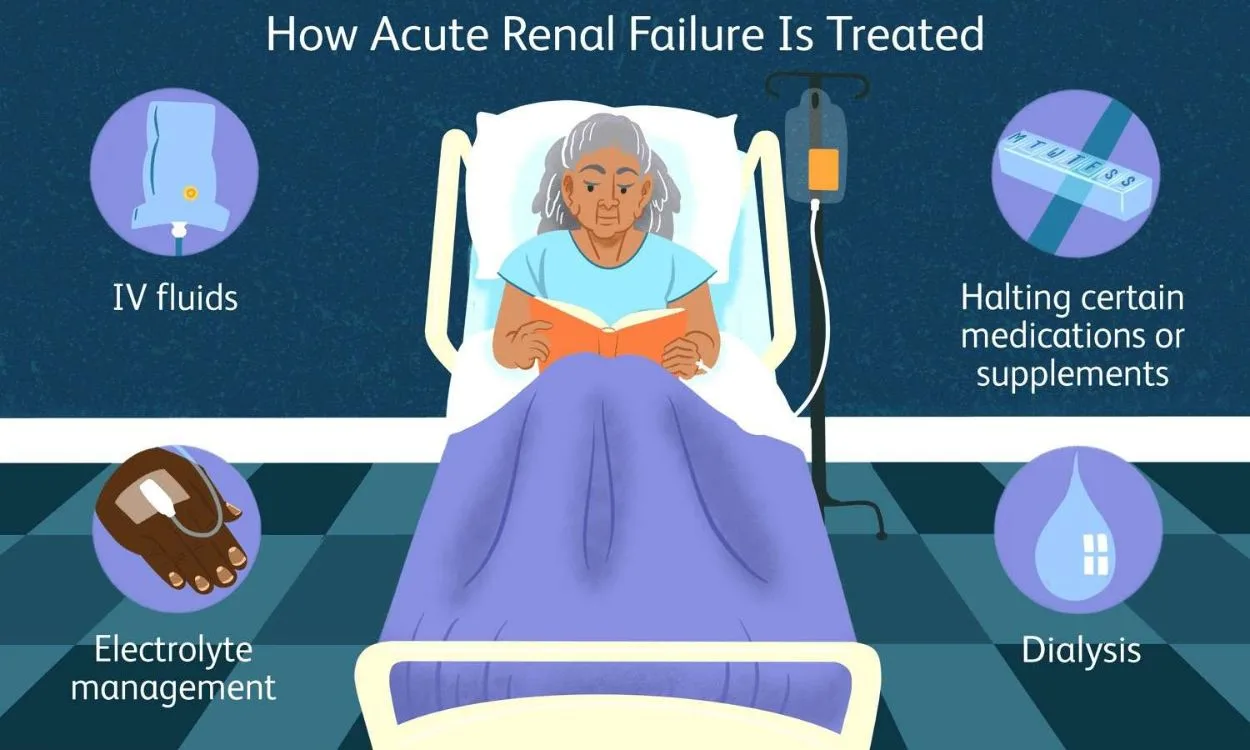How is AKI diagnosed and treated?
AKI, or Acute Kidney Injury, is a condition characterized by a sudden loss of kidney function. It is a serious medical condition that requires prompt diagnosis and treatment. In this article, we will explore the various methods used to diagnose AKI and the treatment options available.
Diagnosing AKI
- Medical history and physical examination: The first step in diagnosing AKI is to take a detailed medical history and conduct a thorough physical examination. The healthcare professional will inquire about symptoms such as decreased urine output, swelling, fatigue, and changes in urinary color or odor. They will also look for signs of fluid retention, such as swelling in the legs or abdomen.
- Blood tests: Blood tests are an essential tool in diagnosing AKI. The following blood tests may be performed:
- Creatinine levels: Creatinine is a waste product that is normally filtered out by the kidneys. Elevated levels of creatinine in the blood indicate impaired kidney function.
- Blood urea nitrogen (BUN) levels: BUN is a waste product that is normally excreted by the kidneys. High levels of BUN suggest decreased kidney function.
- Electrolyte levels: AKI can disrupt the balance of electrolytes, such as sodium, potassium, and calcium, in the blood. Blood tests can identify abnormalities in these levels.
- Urine tests: Urine tests can provide valuable information about kidney function. The following tests may be conducted:
- Urine output measurement: Measuring the volume of urine produced over a certain period can help determine if kidney function is compromised.
- Urine sediment analysis: Examining the urine under a microscope can reveal the presence of blood cells, protein, or other abnormalities that may indicate kidney damage.
- Urinalysis: This test evaluates the physical and chemical properties of urine. It can detect the presence of substances such as glucose, protein, or blood that should not be present in healthy urine.
- Imaging tests: In some cases, imaging tests may be necessary to visualize the kidneys and identify any structural abnormalities that could be contributing to AKI. Common imaging tests include:
- Ultrasound: This non-invasive test uses sound waves to create images of the kidneys. It can help identify blockages, tumors, or other conditions that may be causing AKI.
- CT scan: A computed tomography scan provides detailed cross-sectional images of the kidneys. It can help diagnose conditions such as kidney stones or tumors.
- MRI: Magnetic resonance imaging uses powerful magnets and radio waves to produce detailed images of the kidneys. It can provide valuable information about kidney structure and function.
Treating AKI
The treatment of AKI depends on the underlying cause and the severity of the condition. Here are some common treatment options:
- Fluid replacement: In cases where AKI is caused by dehydration or fluid loss, intravenous fluids may be administered to restore the body’s fluid balance and improve kidney function.
- Medications: Depending on the cause of AKI, medications may be prescribed to address specific underlying conditions. For example, antibiotics may be prescribed for bacterial infections, or diuretics may be used to increase urine output and remove excess fluid.
- Dialysis: In severe cases of AKI, dialysis may be necessary to perform the kidney’s function of filtering waste products and excess fluids from the blood. Dialysis can be temporary or long-term, depending on the individual’s condition.
- Treat the underlying cause: To effectively treat AKI, it is important to identify and address the underlying cause. This may involve treating infections, removing kidney stones, or managing conditions such as high blood pressure or diabetes.
Introducing Fitpaa
While the focus of this article has been on diagnosing and treating AKI, it is worth mentioning the importance of maintaining overall health and well-being. Fitpaa is a comprehensive health and fitness app that can help individuals achieve their health goals and lead a healthy lifestyle.
With Fitpaa, you can:
- Track your nutrition: Fitpaa’s precision diet tracker allows you to monitor your food intake, ensuring you meet your dietary needs while following any dietary restrictions.
- Engage in guided workouts: Fitpaa’s smart workout trainer provides video and voice-assisted workout sessions tailored to your fitness level and goals. It helps you stay active and maintain a healthy weight.
- Receive real-time guidance: Fitpaa’s real-time guidance technology incorporates the concepts of habit building and timely nudging to keep you motivated and on track towards achieving your health goals.
- Consult with experts: Fitpaa provides access to a team of fitness planners, nutritionists, fitness trainers, and doctors who can offer personalized guidance and support. They will help you create a customized fitness plan based on your goals, lifestyle, and health condition.
By using Fitpaa, you can take control of your health and well-being, ensuring that you are on the right track to achieving your health and fitness goals. Download the Fitpaa app today and start your journey towards a healthier life.
Remember, your well-being is our mission at Fitpaa. We are here to support you every step of the way.









